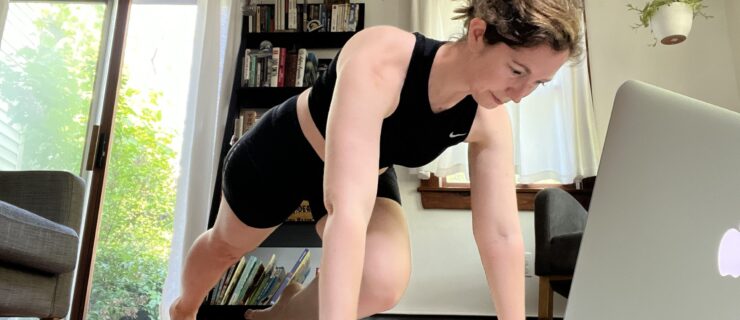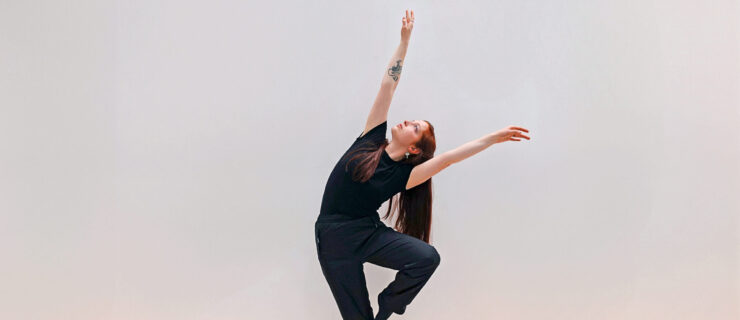How To Deal When Dancing's Got You Down
You love dance. You live dance. You are dance. So what happens when going to class becomes a burden and performing loses all appeal?
First of all, understand that you aren’t alone. Whether you’re burned out or just curious about what life would be like if you weren’t at the studio 20 hours a week, many dancers go through ups and downs.
Even superstars question their dance lives. When American Ballet Theatre principal Angel Corella was a 19-year-old dancer in Spain, he wanted nothing more than to join a classical company—but his only options were modern troupes. He was about to give up ballet entirely, but decided to do a ballet competition in Paris first. The result? A contract with ABT.
Feeling down on your dance life doesn’t have to mean a crisis of identity. Accept how you feel, then have the confidence to make a change. Take a cue from these dancers!
Burned Out
When Carly Goldstein arrived at Skidmore College as a freshman dance and psychology major, she bit off more than she could chew. She joined every club, crammed as many dance classes into her schedule as possible, and didn’t turn down any performance opportunity. By the end of her second semester, the idea of putting on a pair of tights was about as appealing as bunion surgery.
The breaking point came on her birthday, opening night for an excerpt from Swan Lake with guests from ABT. She should have been ecstatic, but instead, she wanted to crawl into a hole. “I had just turned 19, but felt like I was 70,” she recalls. “Everything ached, I couldn’t keep my eyes open and I didn’t want to go to classes or meetings.”
How did she cope?
To get some perspective, she took the entire summer off from dance. She focused on being at peace with herself and practiced a lot of yoga. By the time she returned to school, she was ready to dance again, but her perspective had changed. “I used to determine whether or not to do something by asking myself, ‘Can this produce dramatic results that will get me what I want as soon as possible?’ Now I ask, ‘Does this make me happy, is this good for me and can I do this in moderation?’” she says. “I’m exploring other interests. I’ve found that my dance knowledge and passion for the art is easy to incorporate into interdisciplinary endeavors. I still dance nearly every day, but I’m happier now that I’m approaching it all differently. Knowing how healthy I am makes me happy.”
Resenting Studio Time
If you spend every evening and weekend in class or rehearsal, you may begin to wonder if you’re missing out on extracurricular activities at school. That’s what happened to Becky Albini, who attends Studio 1 Dance Center in Wolcott, CT. “Now that I’m a teenager, it’s really hard to want to go to class because there are other school events and friend things that I want to do,” she says.
How did she cope?
She made the tough choice to take fewer dance classes. Now, she does pageants, has a social life and has joined the dance team. The result? She enjoys dance again. “I love going to dance now more than ever, because I’m not completely stressed about going or completely bored,” she says. “It feels like a fresh start. You really can enjoy all the things you love to do—you just need to manage your time well.”
Ariel Tucker* of Chesapeake, VA, experienced a similar situation. She and her two younger sisters spent 17 hours a week at the studio. “I was so tired of not being able to do anything else besides dance,” she says.
How did she cope?
She took time off to do all-star cheerleading, but quit a year later because it didn’t make her feel as good as dancing did. “I’m so happy dancing now, and when I get tired of it, I just take a few days off,” she says. “I’m in the studio now more than I was before, but it really doesn’t seem like it because I’m enjoying myself.”
Feeling Out of Place
Alden LaPaglia, a graduate of Goucher College’s dance program, now lives in NYC—one of the most exciting and toughest places to dance. But after a few years of class, auditions and supplementing her income as a Pilates and dance teacher, she started to get discouraged.
“I was tired of auditioning and not fitting into the right mold—frustrated by the fact that it isn’t always the strongest dancer who gets the job,” she says. “Also, I just wasn’t inspired by the choreography I was seeing around town.”
How did she cope?
She made her own opportunities. She choreographed on her fellow dancers, started her own company and is now applying to present her work at showcases around NYC.
Professional Dissatisfaction
Though it’s their bread and butter, even the pros can get the blues for a variety of reasons. Maybe they aren’t getting promoted or cast in interesting roles; perhaps they’ve hit a plateau. Maybe the monotony of yet another 40-performance Nutcracker season is unbearable.
How do they cope?
“When I’m not enjoying dancing as much as I would like to, I think about all the other things I like to do,” says Geoffrey Kropp of Kansas City Ballet. He supplements his dance life with academic classes that pique his interest—he just completed a course on the history of rock and roll. “I like to craft, read and watch movies,” he says. “Being a dancer doesn’t mean that dancing is the only thing you do.”



